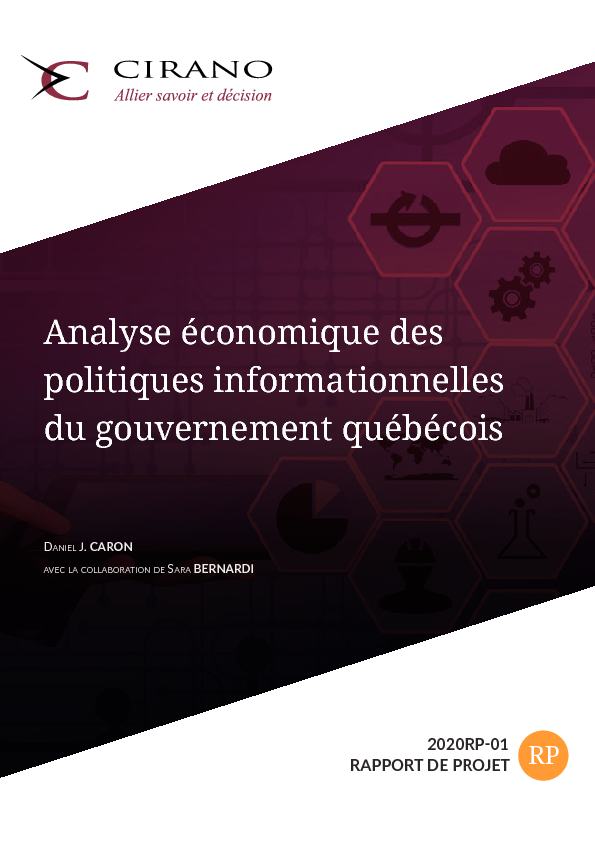Analyse économique des politiques informationnelles du gouvernement québécois
The Government of Quebec wishes to assess the impacts of digital technologies on the effectiveness of its information policies related to government-citizens relationship and the optimization of its business processes. This current report is rooted within a methodology based on information economics. It describes a review which provided the means to identify and analyze part of the information instrumentation – legislative, governmental and administrative – being used within the Government of Quebec. Without claiming to be exhaustive, given the complexity of such an instrumentation, this review made it possible to highlight the significant shortcomings of the instrumentation presently used and some potential solutions to remedy the situation.
At the outset, resulting from the analysis was the weak coherence between the various information instruments (e.g.: Act respecting Access to documents held by public bodies and the Protection of personal information, open data public policies, documents management administrative policies, instructional guidelines, standards, guides, etc.) which have been accumulating for several decades as well as a very strong decentralization of information management instruments. From a partial point of view, this seems to be the consequence of a physical vision of information, that is to say, information conceived as an object through the production of documents that must be accessed, classified and archived or destroyed. In this sense, the instruments can be clustered into three sub-universes of problems: information sharing, information preservation or conservation according to duration and subjective value, and information physical management. The advent of digital technologies has challenged such a concept of information. The analysis also revealed that the instruments were generated to respond to specific problems or challenges, but without necessarily considering information as a public problem to which current governance and management are unable to respond satisfactorily. In order to take full advantage of technological advances in transparency and business process optimization, information should be considered as a general public issue to be addressed in the sense of Gusfield (2009). The latter takes into account that a problem becomes public when it becomes an issue of conflict and controversy within the arenas of public action. The past few years have allowed us to take stock of this evolving transformation within organizations (Caron & Hunt, 2016) or within society in general (Han, 2015). Therefore, it would be possible to conceive a policy framework reflected around a global vision of information in order to acquire more meaningful instruments shaped or moulded by this vision. Furthermore, such a public issue should give rise to a clearer and more operational definition of what information is for governmental organizations.
Arising from the agency theory (Jensen & Meckling, 1976), several observations are also made in connection with the asymmetry of information between the principal (citizens) and the agent (government). In addition to experiencing difficulties in accessing information, citizens are not informed about the information that is produced within public administration. Consequently, the agent decides on the subjective value of the information to be created and shared whereas the information should be considered and valued as a public property to be shared. Finally, although some recent instruments are starting to include this dimension, it is noted that there is not – strictly speaking – a link between the instruments and organizational efficiency.




